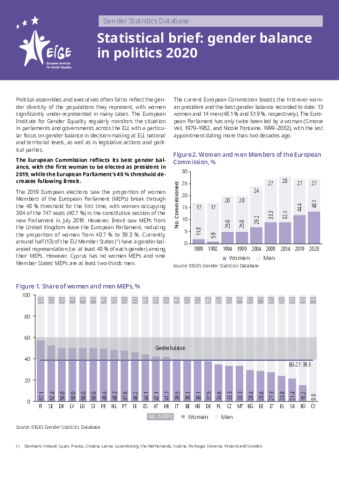Political assemblies and executives often fail to reflect the gender diversity of the populations they represent, with women significantly under-represented in many cases.
The European Institute for Gender Equality regularly monitors the situation in parliaments and governments across the EU, with a particular focus on gender balance in decision-making at EU, national and territorial levels, as well as in legislative actions and political parties.
